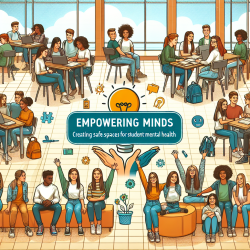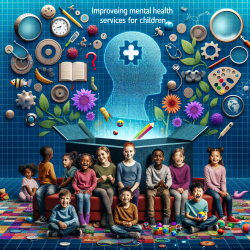Adverse childhood experiences (ACEs) are a significant factor in determining physical and mental health outcomes in adulthood. A recent study conducted in Baghdad city highlights the profound impact these experiences can have on adult health, emphasizing the importance of early intervention and strong family bonds as protective factors.
The Study: A Closer Look at Baghdad
The research conducted by Al-Shawi and Lafta (2015) aimed to estimate the effect of childhood experiences on adult physical health in Baghdad. The study involved a cross-sectional analysis of 1,000 participants aged 18 to 59 years, utilizing a modified ACEs-International Questionnaire to assess childhood experiences and a questionnaire derived from the CDC's Health Appraisal Questionnaire to evaluate physical health.
Key Findings
- A higher level of family bonding significantly reduces the risk of chronic physical diseases by nearly half (odds ratio = 0.57).
- Exposure to high levels of household dysfunction and abuse increases the risk of chronic physical diseases by 81%.
- Community violence exposure during childhood doubles the risk of chronic diseases in adulthood.
The Role of Family Bonding
Family bonding emerged as a crucial protective factor against chronic diseases. Strong family connections can foster resilience, enabling individuals to better adapt to life's challenges. This finding underscores the importance of nurturing positive relationships within families to promote long-term health benefits.
Implications for Practitioners
Practitioners working with children and families can draw valuable insights from this study. Here are some strategies to consider:
- Promote Positive Family Interactions: Encourage activities that strengthen family bonds, such as shared meals, open communication, and joint recreational activities.
- Identify and Support At-Risk Families: Use screening tools to identify families experiencing dysfunction or violence and provide them with targeted support services.
- Implement Resilience-Building Programs: Develop programs that focus on building resilience in children through skill-building activities and supportive environments.
- Advocate for Policy Changes: Work towards policies that address social determinants of health and provide resources for families affected by ACEs.
The Need for Further Research
This study highlights the need for continued research into the effects of ACEs on adult health. By understanding these dynamics better, practitioners can develop more effective interventions to mitigate the long-term impacts of adverse childhood experiences.
Conclusion
The findings from Baghdad underscore the critical role that childhood experiences play in shaping adult health outcomes. By fostering strong family bonds and addressing adverse experiences early on, we can significantly reduce the risk of chronic diseases later in life. Practitioners are encouraged to integrate these insights into their work with children and families to promote healthier futures.
To read the original research paper, please follow this link: Effect of adverse childhood experiences on physical health in adulthood: Results of a study conducted in Baghdad city.










